Depth Psychological Reflections on the Plays of Aeschylus, Sophocles, and Euripides
Nietzsche, in The Birth of Tragedy (1872), on the Apollonian and Dionysian:
“We shall have gained much for the science of aesthetics, once we perceive not merely by logical inference, but with the immediate certainty of intuition, that the continuous development of art is bound up with the Apollonian and Dionysian duality.”
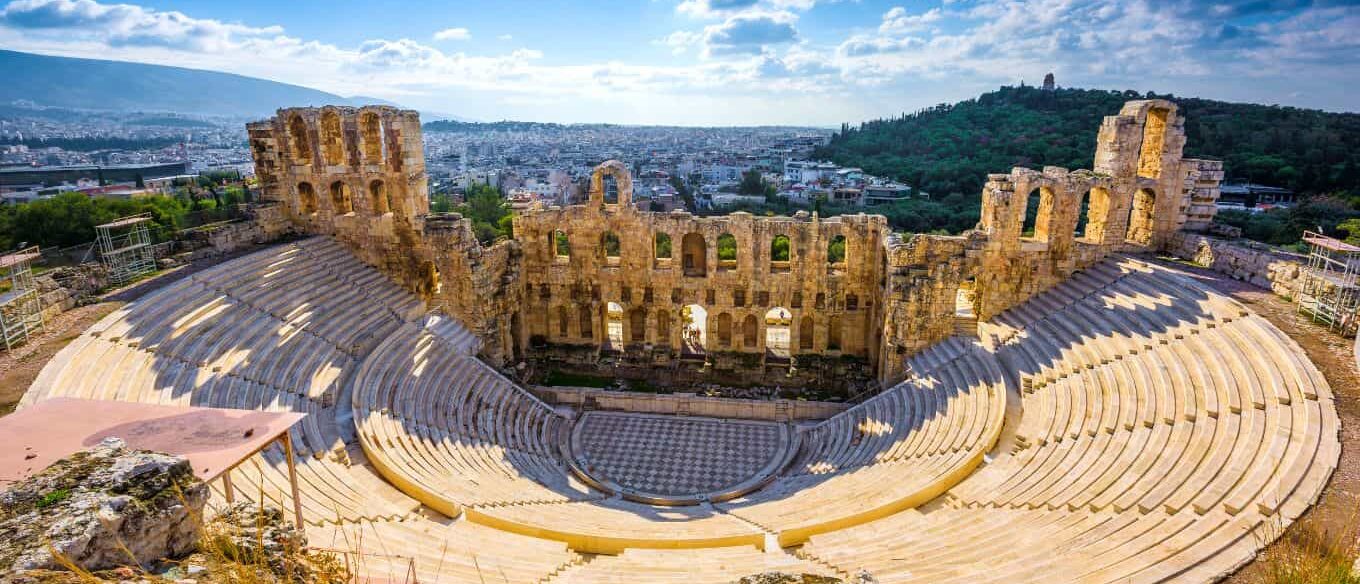
The tragedies of ancient Greece are not merely literary masterpieces; they are profound explorations of the human psyche that anticipated many of the key insights of modern depth psychology. In particular, the works of Aeschylus, Sophocles, and Euripides resonate powerfully with the ideas of Carl Jung, the founder of analytical psychology. From the collective unconscious to the process of individuation, from the integration of opposites to the confrontation with the shadow, the themes and archetypes of Greek tragedy illuminate the depths of the psyche and the universal patterns of human experience.
Jung himself recognized the psychological significance of these ancient plays and frequently drew upon them in his writings and lectures. He saw in them a vivid expression of the archetypal realities that he was seeking to understand and map through his own clinical and theoretical work. For Jung, the myths and symbols of Greek tragedy were not just poetic inventions, but revelations of the objective psyche – the shared, transpersonal dimensions of the human soul.
As Erich Neumann, one of Jung’s most brilliant disciples, observed in his landmark work “The Origins and History of Consciousness”:
“In the great poetry of all time, whether it be the religious scriptures of the peoples or the works of individual creative poets and seers, we continually encounter the ‘eternal’ motifs of mythology, which form the basic patterns of the workings of the human psyche… The great tragedies of the Greeks are an inexhaustible storehouse of these archetypal motifs.”
Neumann saw the Oresteia of Aeschylus as a profound expression of the archetypal cycle of matricide and the birth of individual consciousness. In the character of Orestes, torn between the claims of his mother Clytemnestra and the command of Apollo to avenge his father’s murder, Neumann perceived the universal human struggle to emerge from the primal bond with the Great Mother and establish a mature ego identity.
Similarly, in Sophocles’ Oedipus Rex, Neumann and other Jungians have discerned the archetypal pattern of the hero’s fateful encounter with the taboo and the mystery of his own origins. Oedipus’ relentless quest for self-knowledge, culminating in the shattering revelation of his true identity as the unwitting slayer of his father and husband of his mother, represents the ego’s heroic but ultimately doomed attempt to penetrate the riddle of the unconscious and wrest its secrets by force.
In Euripides’ Bacchae, as Jung himself observed, we witness the eternal conflict between the Apollonian and Dionysian aspects of the psyche, the civilized ego and the instinctual id, playing out in the tragic clash between Pentheus, the rational king of Thebes, and Dionysus, the ecstatic god of wine and madness. The grim fate of Pentheus, torn apart by the frenzied bacchantes, including his own mother, illustrates the perils of repressing or denying the Dionysian energies of the unconscious, which will have their due one way or another.
The Lives and Times of the Greek Tragedians
To fully appreciate the psychological depth and archetypal power of Greek tragedy, it is important to understand the lives and times of the great tragedians themselves. Aeschylus, Sophocles, and Euripides were not mere entertainers, but profound thinkers and visionaries who drew upon their own experiences and the collective wisdom of their age to create works of timeless significance.
Aeschylus (c. 525/524 – c. 456/455 BC), the oldest of the three, was a veteran of the Persian Wars and a deeply religious man. His plays, such as The Oresteia and Prometheus Bound, reflect his preoccupation with the relationship between gods and mortals, the nature of justice, and the inescapable power of fate. As a soldier and a citizen, Aeschylus was deeply concerned with the moral and political issues of his time, and his plays often explore the conflicts between individual and society, between the old ways and the new.
Sophocles (c. 497/6 – 406/5 BC), in contrast, was a man of the polis, a civic leader and a priest of Asclepius. His plays, such as Oedipus Rex, Antigone, and Electra, reflect his interest in the individual psyche, the mysteries of fate and self-knowledge, and the tragic consequences of human pride and folly. As a respected public figure, Sophocles was attuned to the social and moral currents of his age, and his plays often explore the tensions between personal conscience and social duty, between the claims of the gods and the demands of the state.
Euripides (c. 480 – c. 406 BC), the youngest and most subversive of the three, was a friend of Socrates and a critic of traditional religion. His plays, such as The Bacchae, Medea, and Hippolytus, reflect his fascination with the irrational aspects of human nature, the destructive power of passion, and the psychological conflicts of marginal figures such as women and outsiders. As a philosophical iconoclast, Euripides was a keen observer of the human condition, and his plays often expose the illusions and hypocrisies of conventional morality and religion.
The Collective Unconscious and the Archetypal Realm
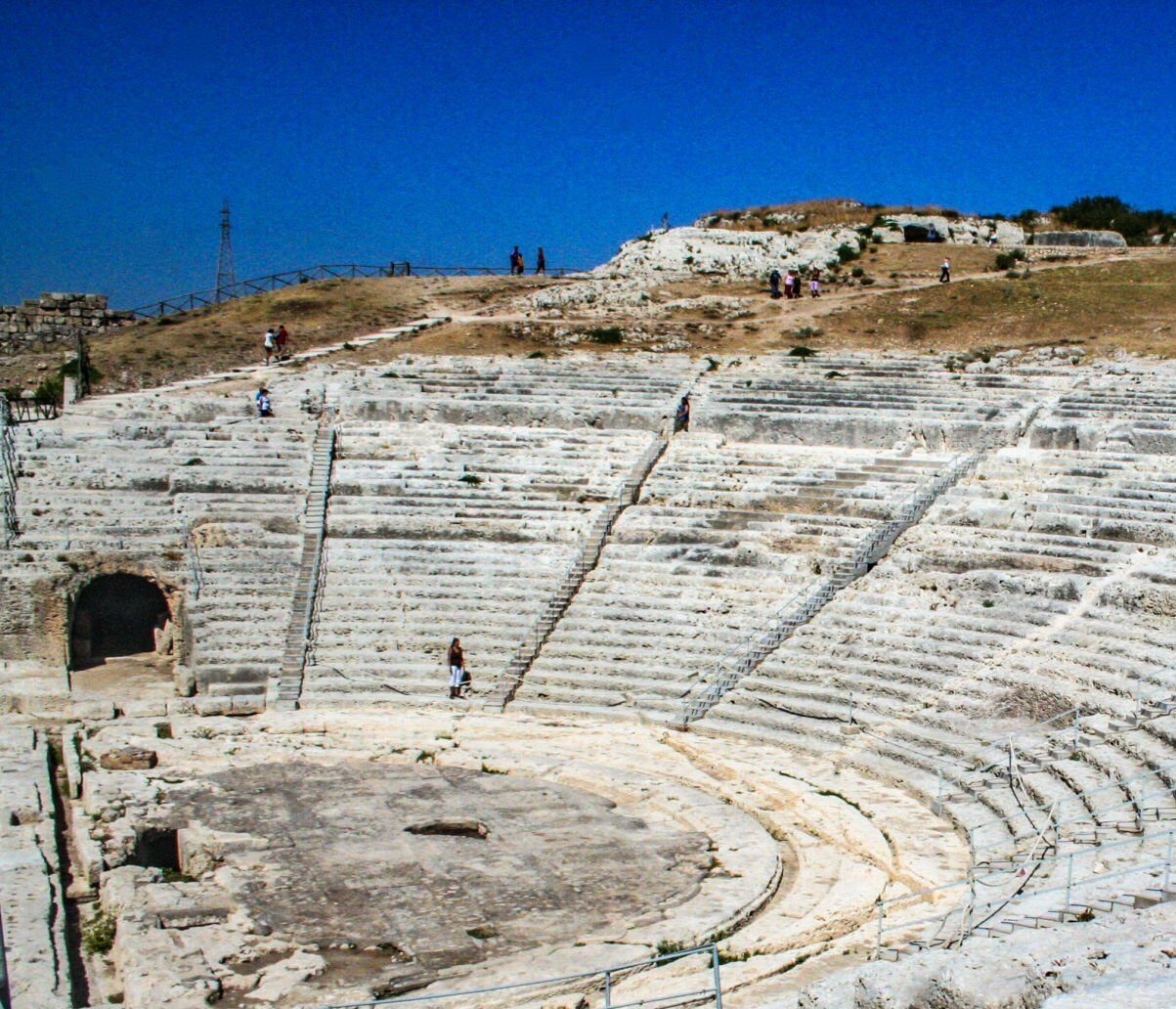
At the heart of Jungian psychology is the concept of the collective unconscious – the shared, innate layer of the psyche that transcends individual experience and contains universal patterns and images. For Jung, the collective unconscious is the wellspring of all mythology, religion, and symbolic expression, and it manifests itself through archetypal figures and motifs that recur across cultures and throughout history.
The world of Greek tragedy is a vivid manifestation of this archetypal realm. The gods and heroes, the conflicts and catastrophes that unfold on the ancient stage are not merely individual characters and events, but mythic embodiments of universal human experiences and psychological realities.
As Edward Edinger, another prominent Jungian analyst, noted in his book “The Psyche on Stage: Individuation Motifs in Shakespeare and Sophocles”:
“Greek tragedy confronts us with the archetypal essence of human existence. It reveals the underlying patterns that govern the course of an individual life. The action on the stage is the exteriorization of an inner, unconscious drama being played out in every member of the audience. The protagonists and antagonists of the drama are not just the particular personalities on the stage but the archetypal components of everyone’s psyche.”
For Edinger, the ultimate function of Greek tragedy was to facilitate the process of individuation – the lifelong journey of psychological maturation and self-realization that Jung saw as the central imperative of human development. By confronting the audience with the archetypal motifs of the hero’s quest, the fatal flaw, the inescapable curse, the necessity of sacrifice, and the redemptive power of suffering, the great tragedies served as sacred rituals of psychic transformation, enabling individuals to constellate the Self and transcend the narrow confines of the ego.
This idea was further developed by Ginette Paris in her groundbreaking work “Pagan Meditations”, which applied Jungian and archetypal psychology to the reinterpretation of Greek mythology and religion. Paris saw in the Oresteia, for example, not just a drama of matricide and patriarchal revolution, but a parable of the soul’s struggle for individuation and ethical autonomy in the face of the overwhelming power of the mother complex:
“The entire Oresteia can thus be seen as the unfolding, the ‘unpacking,’ of the psychological process required for a man to become an individual, his own person, free from the fascinating and paralyzing power of his (internal) mother… He must return to Delphi, to Apollo’s temple, to reconnect with the spiritual father and discover the strength to escape the forces of his psychic past, whether in the form of the mother he has killed or the Furies that pursue him.”
In Euripides’ Medea, Paris perceived the archetypal image of the “deathly mother,” the negative anima run amok, whose rage against the patriarchal order drives her to destroy her own children. Yet Paris also saw in Medea a subversive heroine, a challenger of the conventional Athenian view of women and marriage, whose very outrageousness expresses the return of the repressed feminine in a male-dominated society.
James Hillman, the founder of archetypal psychology and perhaps the most original Jungian thinker after Jung himself, was another keen interpreter of the psychological wisdom encoded in Greek tragedy. In his essay “On Paranoia,” for example, Hillman turned to Sophocles’ Ajax to illuminate the psychodynamics of the paranoid state, the “Ajaxian condition” marked by rage, suspicion, and the fantasy of heroic betrayal.
For Hillman, Ajax’s madness and eventual suicide represented not just a personal pathology, but an archetypal pattern rooted in the warrior mentality and the crisis of the masculine ego when confronted with the irrational powers of the unconscious. As Hillman observed:
“Ajax stands as the archetypal image of the masculine heroic position and its inevitable collapse. He is the patriarchal ego that cannot bend, the classical superego that knows no relativity. His madness and death reveal the -telos- of the hero, and the -pathos- of the single-minded, uncompromising position, which, because it excludes so much cannot endure.”
In his book “Oedipus Variations,” Hillman teamed up with psychologist Sonu Shamdasani to explore the many meanings and permutations of the Oedipus myth, not just in Sophocles, but in the wider context of Greek literature, religion, and culture. Rather than reducing Oedipus to a single psychoanalytic complex, Hillman and Shamdasani sought to unfold the multivalent significance of the hero’s journey, from his fateful birth and exposure on Mt. Cithaeron to his climactic blinding and redemptive wandering as an old man in Oedipus at Colonus.
For Hillman and Shamdasani, the Oedipus story was nothing less than the root myth of depth psychology itself, the template for all individuation narratives and the key to understanding the enigmas of human existence:
“The Oedipus complex is not an aberration, but a necessity. It is an initiation into the mysteries of the human condition. What is this mystery? It is the recognition that life is tragic, that we all unwittingly kill our fathers and marry our mothers, that we are all subject to forces beyond our control, that we are all guilty and innocent at once, that we are all bound to suffer and die. This is the wisdom of Oedipus, the wisdom of the Sphinx, the wisdom of depth psychology.”
The Shadow and the Confrontation with the Unconscious
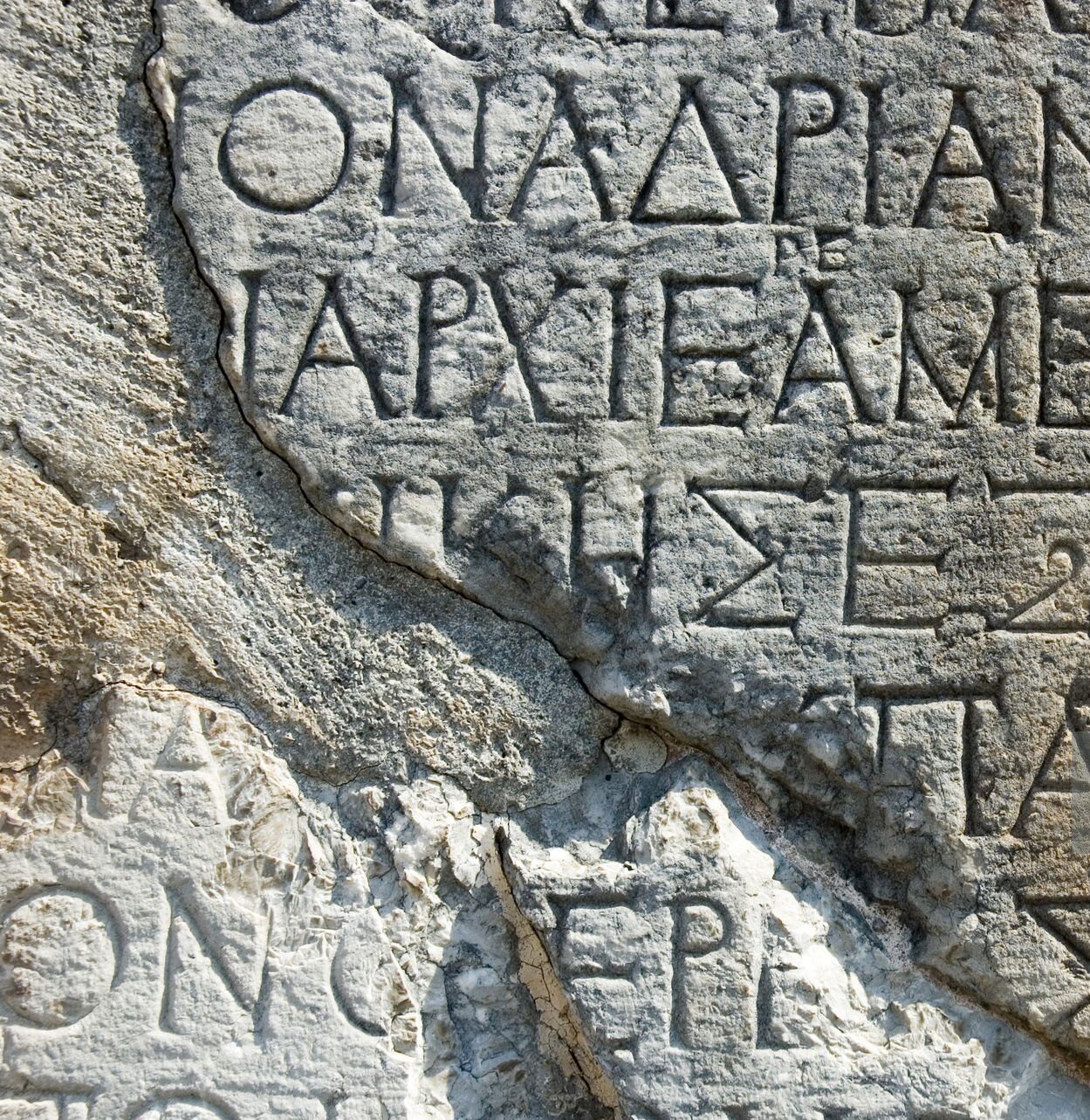
Another central theme in Jungian psychology is the shadow – the repressed, inferior, or unconscious aspects of the personality that the ego refuses to acknowledge or accept. For Jung, the confrontation with the shadow is a crucial stage in the individuation process, as it requires the ego to face its own darkness and integrate the rejected parts of the self.
This theme of shadow confrontation is powerfully dramatized in many Greek tragedies. In Aeschylus’ Seven Against Thebes, for example, we witness the fatal conflict between Eteocles and Polynices, the warring sons of Oedipus who are doomed to kill each other in battle. On a psychological level, this fratricidal clash can be seen as a vivid representation of the ego’s battle with its own shadow – the unrecognized, unintegrated aspects of the self that are projected onto others.
Similarly, in Sophocles’ Elektra, we encounter the archetypal struggle of the daughter against the shadow mother. Clytemnestra, who has murdered her husband Agamemnon, represents the negative, devouring aspect of the feminine that Electra must confront and overcome in her quest for justice and self-realization. Her battle with Clytemnestra is not merely a personal vendetta, but a mythic representation of the ego’s struggle to free itself from the grip of the unconscious and to forge its own identity.
And in Euripides’ Medea, we witness the terrifying eruption of the shadow in the form of the scorned and vengeful wife. Medea’s murder of her own children is a shocking manifestation of the destructive potential of the unintegrated shadow, the repressed fury and pain that can explode with catastrophic consequences.
Clearly, for Jung and his followers, the great Greek tragedians were more than just brilliant poets and dramatists; they were sages and seers of the soul, whose works contain inexhaustible riches for anyone seeking to understand the depths of the psyche. By engaging with these primordial stories and images, we not only expand our cultural and literary horizons, but we also deepen our knowledge of ourselves and our own inner world.
As Jung himself put it in his essay “On the Relation of Analytical Psychology to Poetry”:
“The creative process, insofar as we are able to follow it at all, consists in the unconscious activation of an archetypal image and in elaborating and shaping this image into the finished work. By giving it shape, the artist translates it into the language of the present, and so makes it possible for us to find our way back to the deepest springs of life. Therein lies the social significance of art: it is constantly at work educating the spirit of the age, conjuring up the forms in which the age is most lacking. The unsatisfied yearning of the artist reaches back to the primordial image in the unconscious which is best fitted to compensate the inadequacy and one-sidedness of the present.”
In this sense, the study of Greek tragedy from a depth psychological perspective is not just an academic exercise, but a way of reconnecting with the living springs of the collective unconscious and activating the archetypal energies that are needed to compensate the imbalances and deficiencies of our own time. By descending into the underworld of the ancient psyche, we may find the resources to renew and transform our own.
The Anima and the Animus: The Feminine and Masculine Within
From Sophocles’ Oedipus Rex, on the paradox of self-knowledge:
“And none can be called happy until that day when he carries His happiness down to the grave in peace.”

Another key concept in Jungian psychology is the anima/animus – the complementary feminine and masculine energies that exist within each individual, regardless of biological sex. For Jung, the integration of these contrasexual aspects of the psyche is essential for psychological wholeness and the realization of the Self.
The interplay of feminine and masculine energies is a recurrent theme in Greek tragedy, often embodied in the conflicts and relationships between gods and mortals, men and women. In Aeschylus’ The Suppliants, for example, we witness the archetypal drama of the feminine confronting the masculine in the form of the fifty daughters of Danaus fleeing their fifty suitors. On a psychological level, this mythic scenario can be seen as a representation of the ego’s struggle to integrate the anima, the inner feminine that is initially experienced as alien and threatening.
Similarly, in Sophocles’ Women of Trachis, we encounter the tragic interplay of masculine and feminine in the figures of Heracles and Deianira. Heracles, the archetypal hero, is destroyed by the poisoned robe given to him by his wife Deianira, who in turn is driven to suicide by her own jealousy and guilt. This catastrophic exchange can be seen as a mythic representation of the destructive potential of unintegrated anima and animus energies, the psychological havoc that can ensue when the inner masculine and feminine are not harmonized.
And in Euripides’ Hippolytus, we witness the tragic consequences of the repression and rejection of the feminine in the figure of the chaste and misogynistic Hippolytus. His refusal to honor Aphrodite, the goddess of love, and his disgust for the feminine ultimately lead to his downfall, as the scorned Phaedra falsely accuses him of rape and brings about his death. On a psychological level, Hippolytus’s fate can be seen as a cautionary tale about the dangers of denying the anima, of refusing to integrate the feminine aspects of the psyche.
In each of these plays and many others, the Greek tragedians explore the archetypal dance of the feminine and masculine, the vital necessity of integrating these complementary energies for psychic wholeness. Their mythic scenarios anticipate Jung’s insights into the anima and animus, the contrasexual dimensions of the unconscious that must be recognized and embraced in the journey of individuation.
The Individuation Process and the Realization of the Self

Jung, in Memories, Dreams, Reflections (1962), on the process of individuation:
“There is no linear evolution; there is only circumambulation of the self. Uniform development exists, at most, only at the beginning; later, everything points toward the centre.”
At the heart of Jungian psychology is the concept of individuation – the lifelong process of psychological maturation and self-realization, the unfolding of the unique individual personality from the matrix of the collective unconscious. For Jung, individuation is the ultimate goal of human development, the fulfillment of our innate potential for wholeness and meaning.
This theme of individuation is powerfully dramatized in many Greek tragedies, which often depict the hero’s journey from unconsciousness to self-awareness, from fragmentation to wholeness. In Sophocles’ Philoctetes, for example, we witness the archetypal story of the wounded healer, the outcast hero who must reconcile with his own pain and betrayal in order to fulfill his destiny. Philoctetes’ journey from bitterness and isolation to reintegration and purpose can be seen as a mythic representation of the individuation process, the ego’s struggle to embrace its own woundedness and find its place in the larger order of things.
Similarly, in Sophocles’ Oedipus at Colonus, we encounter the final stage of the hero’s journey, as the blind and exiled Oedipus finds his resting place and achieves a kind of sacred status. His transformation from the arrogant king to the humbled wanderer to the blessed shade can be seen as an archetypal representation of the individuation process, the ego’s ultimate surrender to the Self and its integration into the larger mystery of being.
And in Euripides’ Iphigenia in Tauris, we witness the heroine’s journey of self-discovery and redemption, as Iphigenia, long thought dead, discovers her true identity and rescues her brother Orestes from the Furies. Her transformation from the exiled priestess to the savior of her family lineage can be seen as a mythic representation of the individuation process, the realization of the Self through the integration of the personal and transpersonal dimensions of the psyche.
In each of these plays and countless others, the Greek tragedians depict the archetypal journey of the hero towards self-realization, the unfolding of the individual destiny from the web of collective fate. Their mythic scenarios anticipate and illuminate Jung’s concept of individuation, the lifelong process of psychological transformation and growth.
From Euripides’ The Bacchae, on the eruption of the Dionysian:
“Agave is coming, whirling and circling in the dance, her eyes rolling– dazed, entranced, see how she takes Pentheus’ head for a mountain lion’s, her trophy of the chase!”
Classical Literature
Iphigenia in Aulis





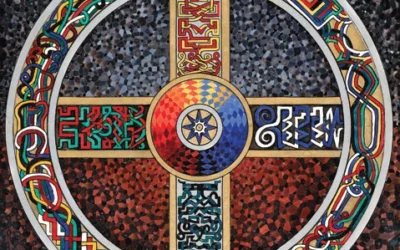
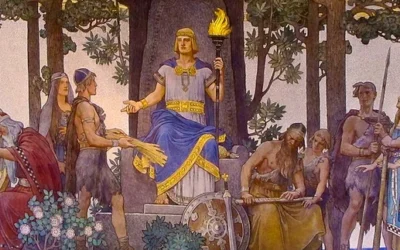


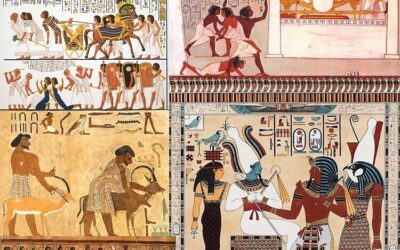
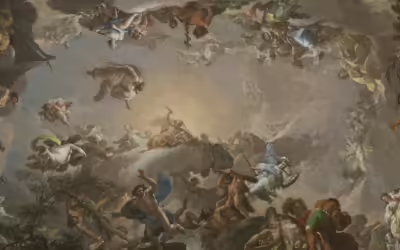



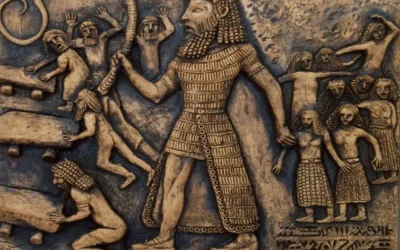
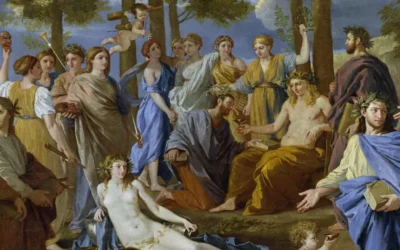
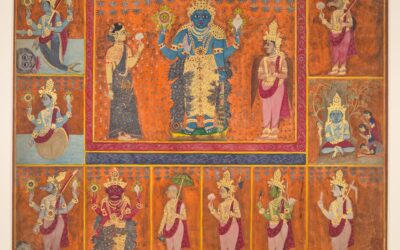
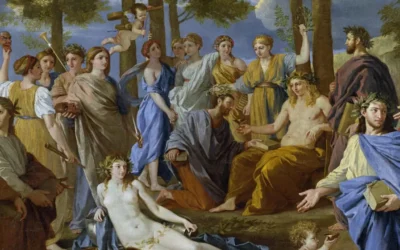
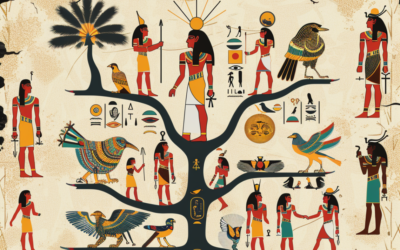
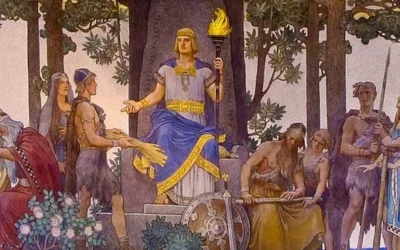

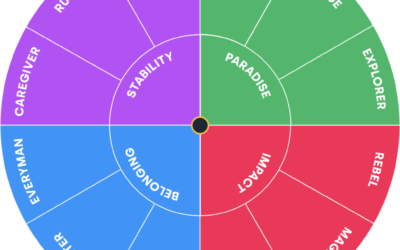

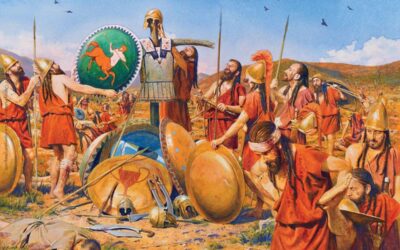
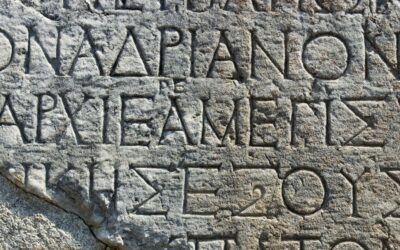

0 Comments